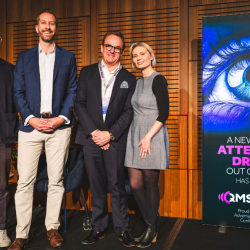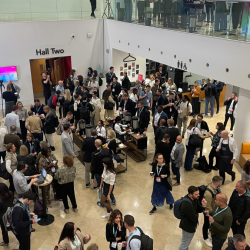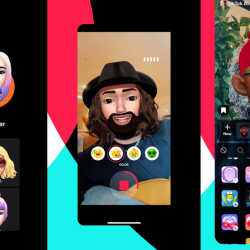Metaverse is arguably one of the most used but misunderstood words of 2021. For me, the metaverse is an open ecosystem where physical, digital and virtual realities merge into one universe. It presents users with an immersive, always-on experience that transcends our conventional understanding of time and space. It is underpinned by interoperability, a fully functioning economy and open access to all.
As the world enters Web 3.0, the emerging metaverse is going to challenge the way businesses currently operate and it is time for brands to reimagine their marketing strategies.
Reimagine brand identity in the metaverse
Bloomberg recently estimated the metaverse to be a £600 billion pound industry by 2024 and brands are undoubtably interested in this burgeoning area, and are exploring activation opportunities to engage with wider audiences.
However, a key question that often gets overlooked is, ‘What is your brand identity in the digital world and how do you want it to behave?’
The word identity comes from Latin, and literally means ‘repeated beingness’. That’s the principle that brands should embody. They must move away from the one-off campaign mindset into a continuous live operation of their brand identity.
Because the metaverse doesn’t have an on and off — deciding how your brand behaves in an ‘always-on’ environment must be done before finding the right tactics of delivering continuous interaction, engagement and nurturing for your audience and communities.
Rethink your technology
One of the unique parts of the metaverse is its interoperability — the technology behind it enables seamless operation, integration and interaction between different applications. Brands with a robust infrastructure that can capitalize on the interoperability of the digital world, will have significant competitive advantage and differentiation in this marketplace.
Whilst we can’t predict the exact future, there’s already a fully functioning economy growing in the metaverse.
With blockchain and its decentralized nature, non-physical assets such as cryptocurrency, NFTs and digital fashion are being created and traded solely in a digital way. These digital properties will be a key driver in determining ‘valuable’ in the metaverse, and brands must understand and embrace different interoperable tools and build a robust infrastructure, in order to monetize in the metaverse at scale.
Connectivity is another route to unlocking the full potential of the metaverse and allowing users to fully immerse themselves in its environment.
Brands will need to be able to operate in an ecosystem where different applications, software and devices can exchange value with each other — to give end users a seamless and interconnected experience. Just like your existing marketing strategy, brands will need to work with different platforms, suppliers and stakeholders to bring it to the metaverse.
Redefine your audience
Digital identity is not a new phenomenon. From creating gaming avatars to personalizing emojis, people have been creating extensions of their physical selves in the digital world for a long time. The metaverse will elevate this sense of digital self even further.
In fact, in our most recent study on Gen Z, their physical and digital identities are already intertwined — how they show up on gaming platforms such as Fortnite is equally important as how they show up offline.
Identity and culture creation in the metaverse is going to be a key attraction to people who are not digital first. Companies such Microsoft and Meta are investing significant resources in creating platforms where people can bring their most authentic selves and presence into a digital space.
The assets, cultures and communities that are currently being created, maintained and evolved digitally are starting to enhance users’ self-expression and indicating different statuses in the metaverse. Imagine users with the most valuable NFTs or a pair of digital sneakers from a high-end fashion brand — they will inevitably stand out.
It is important for brands to understand that virtual beings have virtual behaviours and they often differ from how users behave in the physical world. Brands should let go of traditional ways of marketing and segmentation, and begin with immersing themselves in different platforms to observe and interact with the communities with whom they want to engage.
I believe brands who can co-create stories, experiences and values within specific communities in the metaverse will be the winners of tomorrow.
Where to start in 2022?
One way to get into and experiment in the metaverse is through gaming. Popular open world gaming platforms such as Fortnite, Roblox and Animal Crossing already embody characteristics and properties that are shaping the evolution of this space. Brands can learn new things about player engagement, community building, immersive experience, digital assets and more through gaming alone.
Brands should think about their investment in the metaverse as a long-term business strategy, rather than just one-off marketing activation. They should begin by educating their marketers on key technologies that enable the metaverse and upskill them accordingly. This knowledge will be vital, not only for building a brand strategy that converges the physical and digital experiences, but also for future proofing the business.
Featured image: Epic Games































